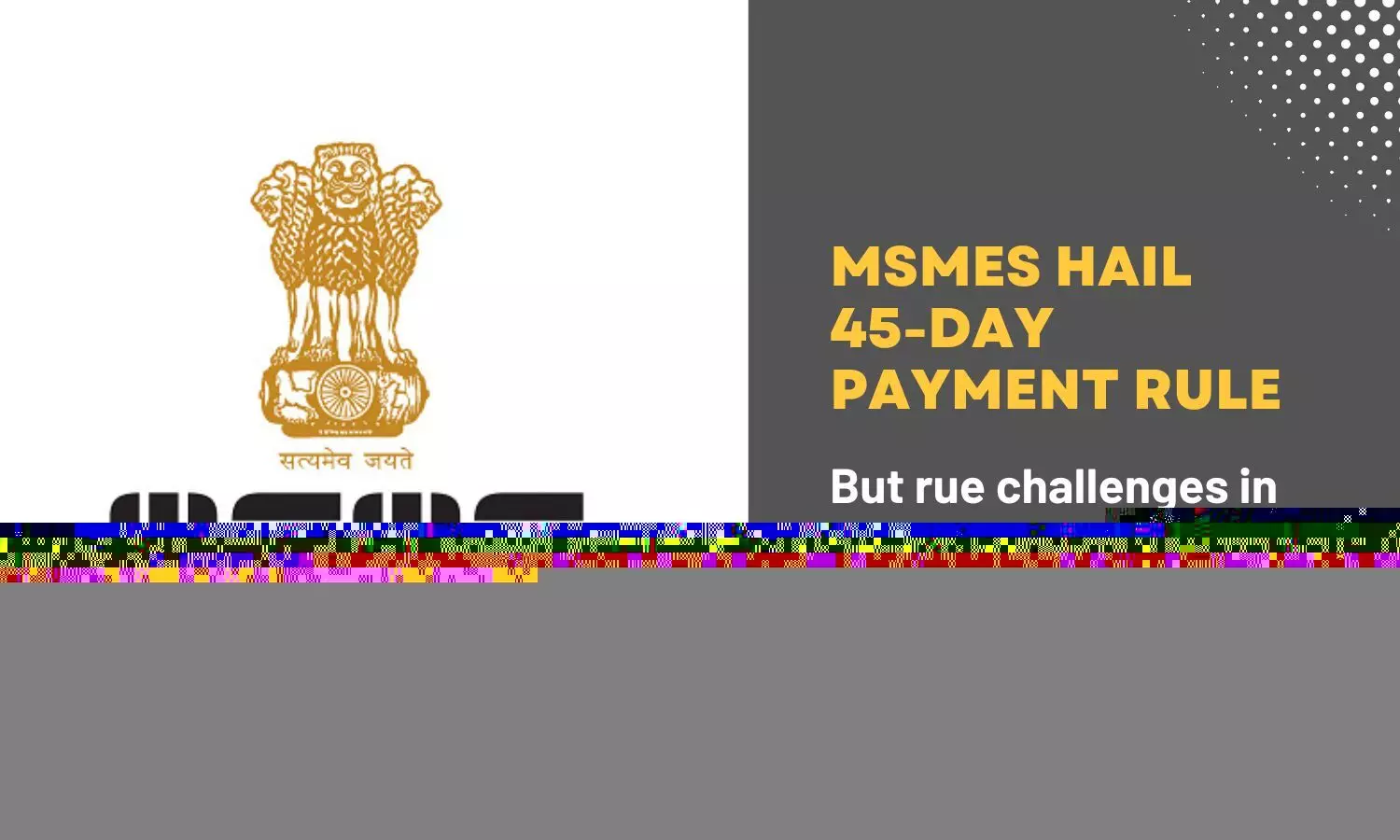MSMEs hail 45-day payment rule, but rue challenges in implementation
The industry bodies seek more clarity on applicability of the law and other related provisions
image for illustrative purpose

Hyderabad: The industry bodies have appreciated the Income-Tax (I-T) rule disallowing businesses from claiming tax deductions for payments beyond 45 days to MSMEs for supply of goods and services. Though this rule has come into effect from Monday, they are of the opinion that it will take more time for stricter implementation by all stakeholders, including the government departments.
The Section 43B(h) of the Income Tax Act, which was introduced through Finance Act 2023, provides that any sum payable by a large company to the micro, small and medium enterprises (MSMEs) beyond the specified time (within 45 days in case of written agreements) can’t deduct that expense from its taxable income, leading to potentially higher taxes.
“This 45-day payment rule is good but it has its own set of challenges,” says Anil Agarwal, former President of the Federation of Telangana Chambers of Commerce and Industry (FTCCI). “It must be followed by all stakeholders while making the payments to the MSMEs. Even the departments of the State government are involved in delayed payments.”
Expressing similar views, Meela Jayadev, President of the FTCCI, said that the rule lacks clarity about the I-T rebate. He questioned how the I-T department can identify the delayed payments of a company to its multiple MSMEs while filing for the tax deductions once in a year. Moreover, there are chances of blacklisting the MSME suppliers if they complain against the payments.
“This is a great initiative but it will take at least a few months to implement successfully. This rule must be applicable to the government also. Crores of rupees worth government payments have been pending to hundreds of MSMEs in Telangana for the past three years. Some government department officials threaten the MSMEs to issue notices citing product defects if they demand the payments,” he informed.
Already, Section 15 of the MSME Development Act mandates payments to micro and small enterprises (MSEs) within 45 days in case of written agreement and 15 days in case of no-written agreements. If there were any late payments to an MSE, the companies must pay compound interest at three-times the bank rate of interest.
However, it was not effectively being implemented by the large-scale companies and the payments have been delayed to the MSE suppliers. As this rule has become mandatory now, the MSMEs are scared of losing their contracts with the large-scale firms. They are also worried that the non-MSMEs or those that are not registered with Udyam portal may bag the supplying orders.
According to Telangana Industrialists Federation (TIF) President Sudhir Reddy, the leaders of big companies were lobbying with the government to change the provisions and they may likely succeed in diluting the rule after the elections. He said that the representatives of the large-scale firms are discussing with the ministers to alter the law but they were busy with their ongoing election campaigns.
“Most of the large companies are defaulters. Due to their delayed payments, the profitability of the MSMEs is going down. The new rule will be definitely helpful to the MSMEs if it is implemented very strictly. Their payments will be given the top priority over other expenses. Their cash flows will be increased as well as their working capital scarcity will be addressed to a maximum extent,” he informed.
“Currently, the MSMEs are having only unilateral (one-sided) agreements with the big companies that are totally in favour of the latter. The large-scale firms may insist the MSMEs to either supply through another trading unit or de-register from the Udyam portal. To surpass the provisions, they may think about other alternatives in addition to lobbying with the government.”

